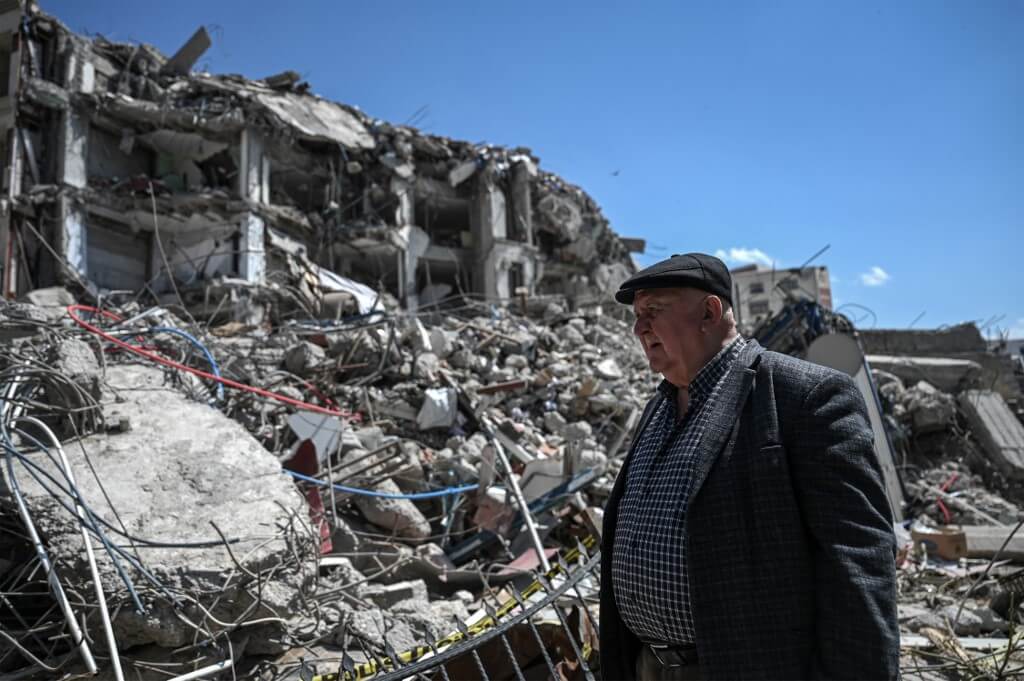Google’s earthquake warning system failed to get to many Turkish residents before February’s deadly tremors, a BBC Newsnight investigation has found.
Turkey was shaken by two powerful earthquakes, a magnitude 7.8 and 7.5, on Feb. 6 that which claimed the lives of more than 50,000 people in southern and southeastern Turkey.
Google says its alert system can give users up to a minute’s notice on their phones before an earthquake hits.
It says its alert was sent to millions before the first, biggest quake.
However, the BBC visited three cities in the earthquake zone, speaking to hundreds of people, and failed to find anyone who had received a warning.
The system works on Android phones, essentially any phone that isn’t an iPhone. Android phones, which are often more affordable, make up about 80 percent of the phones in Turkey.
“If Google makes a promise, or makes an implicit promise, to deliver a service like earthquake early warning, then to me, it raises the stakes,” says Professor Harold Tobin, director of the Pacific Northwest Seismic Network.
“They have a responsibility to be able to follow through on something that is directly related to life and limb.”
Google’s product lead on the system, Micah Berman, insisted it had worked. “We are confident that this system fired and sent alerts,” he told the BBC.
However, the company did not provide evidence that these alerts were widely received.
After the first major 7.8-magnitude earthquake struck in the early hours of the morning, the other major tremor shook the surrounding area at lunchtime.
The BBC was able to find a limited number of users who received a warning for this second quake.
Google’s Android Earthquake Alert System was announced in Turkey in June 2021.
The system is operational in dozens of countries around the world. The company describes the ability to send quake alerts as a “core” part of its Android service.
It works by using Android’s vast network of phones. Smartphones contain tiny accelerometers that can detect shaking.
When many phones shake at the same time, Google can pinpoint the epicenter and estimate the strength of a quake. Google has made an explainer on how it works.
When an earthquake of magnitude 4.5 or greater is detected, the Android system can send a warning.
“This is an alert unlike any you’ve probably seen on your phone before. It takes over your phone screen,” Mr. Berman says.
The warning says “drop, cover, hold” and is accompanied by a loud alarm.
It should also override a user’s do not disturb mode automatically, so the person does not need to switch it on.
“No matter what state your phone is in, you should get that warning,” Mr. Berman says.
Google claims the system successfully sent alerts on Feb. 6 to millions of people.
Despite extensive reporting across the earthquake zone in the hours, days and weeks after the quake, no one mentioned getting an alert to the BBC.
So BBC said it began to search specifically for people who had gotten the warning.
A BBC team travelled to Adana, İskenderun and Osmaniye, cities between 70 kilometers (43 miles) and 150 kilometers (93 miles) away from the epicenter and spoke to hundreds of people with Android phones.
Although the BBC team managed to find a small number of people who had gotten an alert for the second earthquake, they couldn’t find anyone who got a warning ahead of the first, most powerful quake.

